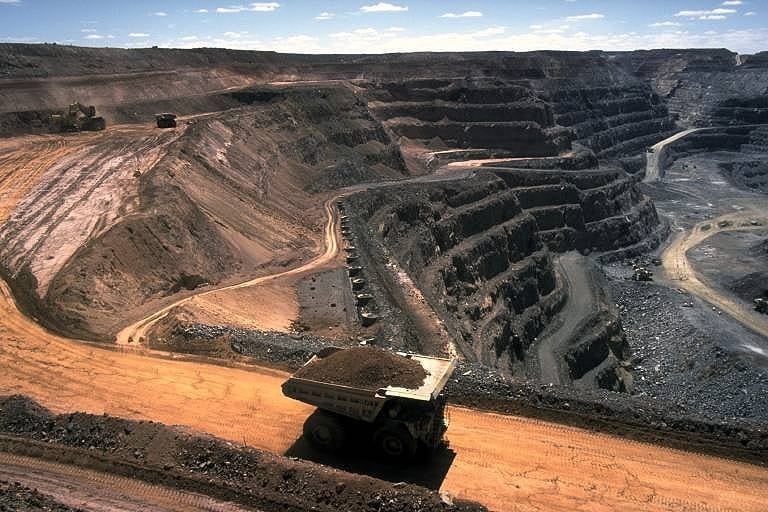Never before will the world see this level of coordination of climate protests, writes Fiona Waters of the Break Free movement, as citizens prepare to shut down a coal mine in Wales in a wave of global fossil fuel protests set for May.
Hundreds of people are gathering in Wales this weekend to shut down the UK’s largest coal mine near Merthyr Tydfil as part of a mass global protest against fossil fuels kicking off in May.
In Wales, environmental activists aim to close one vast mine – Ffos-y-fran, 178m deep, covering 3,500 acres, with almost 11 million tonnes of coal left to be dug up – and send a signal that other mines currently in the planning process across England and Wales must never be dug.
The camp is, in particular, supporting the long-running local campaign to stop the proposed Nant Llesg mine next door, with 6 million tonnes of coal.
After a residents’ campaign, Caerphilly Council refused the new mine planning permission despite bullying tactics from the mine’s owner, but the owners are now appealing to the UK government. The UK government has, however, promised to phase-out coal power by 2025. New mines will make that much harder to do.
With our bodies and banners we will draw a red line across the mine, echoing the promise we made at the red lines actions in Paris in December – it’s up to us to keep fossil fuels in the ground.
There have been many direct actions against fossil fuel infrastructure before. So what’s new this time?
It’s not the scale: climate camps in the past have successfully drawn thousands of people together, closing Kingsnorth coal-fired power station, and winning a cross-party commitment against a third runway at Heathrow.
It’s not the location: the mine at Ffos-y-Fran, near Merthyr Tydfil has been targeted before by activists including George Monbiot of the Guardian.
It’s not the issue: the evidence that we have to keep fossil fuel reserves in the ground to avoid catastrophic climate change has been growing for some time. The December 2015 Paris agreement to hold global temperatures below a 1.5C rise has just made the case stronger for an urgent end to coal mining.
It’s not the tactics: non-violent civil disobedience has a long and successful history. It’s been used in campaigns for almost every fundamental right we hold dear today.
From the suffragettes chaining themselves to the railings of Parliament, to the civil rights movement peacefully facing down dogs and rubber bullets in the USA, direct action has been a catalyst for change. In Wales, Aneurin Bevan and the Workers’ Defense Corps took direct action to win new rights for coal mine workers in the 1920s.
So what’s the big difference this time?
In May, protests at Ffos-y-Fran will not stand alone. An astonishing array of actions will be happening across every continent except Antarctica, with tens of thousands of ordinary people rising up to call an end to the most destructive fossil fuel projects.
In Brazil, people will take direct action to close the Jurong Aracruz shipyard, which produces oil and gas rigs to explore for yet more fossil fuels in the Atlantic.
In Ecuador, protests aim to stop oil drilling in the Yasuni National Park, a pristine part of the Amazon considered one of the most biodiverse areas on the planet.
In Germany, echoing the successful protest last year, thousands of people in the Ende Gelände movement will invade a vast lignite mine near Berlin, demanding the shutdown of this most dirty form of energy.
In Australia, the world’s largest coal port will be shut down, signalling that Australia’s future is in clean energy, not coal exports.
In Indonesia, new coal plants will be stopped by a mass action in East Kalimantan, where vast new opencast mines are tearing through the rainforest.
In Nigeria, multiple actions will target the country’s most dangerous oil drilling operations, which for many years have extracted resources from the country, leaving local people with polluted ecosystems.
Governments promised in Paris last December to keep the planet to 1.5 degrees of warming, to avoid the tipping points of catastrophic climate change. But their actions are not meeting this promise.
The average global temperature change for the first three months of 2016 was 1.48 degrees. We are on the threshold of a planetary emergency, and our actions must meet this threat.
Never before will the world have seen this coordination of climate protests. With direct action, we can stop fossil fuel production, and avoid catastrophic climate change.
To join the camp this weekend, sign up here. To find out more about the global Break Free From Fossil Fuels actions and how you can participate, visit their website here.
Photo: Stephen Codrington via Wikimedia Commons
Subscribe to our newsletter
Stay up to date with DeSmog news and alerts







